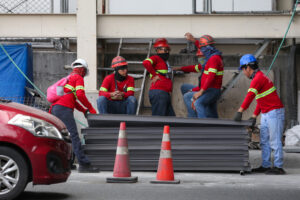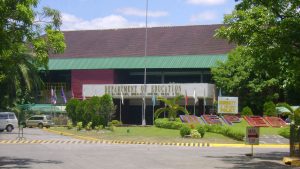THE Philippine Chamber of Commerce and Industry (PCCI) and Makati Business Club (MBC) on Thursday expressed concern over a legislated wage hike, saying this could further stoke inflation, hurt small businesses and reduce the country’s overall competitiveness.
At the same time, President Ferdinand R. Marcos, Jr. is looking into the “economic implications” of a legislated wage hike, the Palace said on Thursday.
“We will look at the economic implications of these and how to resolve these with the opinion of the wage boards since the wage boards are also the creations of the Congress,” Palace Press Officer Clarissa A. Castro told a news briefing on Thursday, quoting Mr. Marcos.
She said the President is considering all aspects and concerns of stakeholders on the legislated wage hike.
“That issue has not yet been finalized in the Senate. As our President said, we will look at any economic implications regarding this, but the President wants to provide what is right and what is better for the Filipino workers,” she added.
Congressmen voted 171-1-0 to approve House Bill No. 11376 which would raise daily minimum wages by P200 for workers in the private sector. This could be the first legislated wage hike since the late 1980s, when a law created regional wage boards to dictate pay rates. The Senate greenlit a counterpart bill seeking a P100 wage increase last year.
However, the House’s approval of the wage hike comes just a few days before Congress adjourns for the final time on June 13.
In a statement, the PCCI said the wage hike will have an impact on the price of goods and services, workers in the informal sector and micro and small enterprises that comprise around 96% of the total number of enterprises in the country.
“The wage hike leads to higher labor costs, consequently resulting in higher costs of goods and services and inflation,” it said.
The PCCI said the legislated wage hike would only benefit workers in the formal sector, but the “inflationary effect will erode purchasing power negating the wage hike’s intended benefit.”
“Increased operational expenses lends the risk of closure of smaller enterprises, reducing further the number of jobs in the formal sector,” it said.
The PCCI said a legislated wage hike undermines the Regional Tripartite Wages and Productivity Board that was created to determine and set region-specific wages that take into account differences in the cost of living.
“Legislating a single wage for all areas can harm businesses in lower-cost regions and removes the flexibility of the regional wage boards to set wages that are aligned with the situation in the local areas,” it said.
“The PCCI hopes that the bicameral conference committee will consider the position of the business sector and adopt a comprehensive approach that balances the needs of workers with the capacity of businesses and ensures that MSMEs (mi-cro, small, and medium enterprises) continue to thrive while still providing fair wages,” it added.
For its part, the MBC said the “steep wage hike may have a tendency to trigger added inflation,” adding the government should focus on bringing prices of basic commodities down.
“If we don’t address the prices of basic goods, there will be continuing pressure to keep increasing wages, which is not only inflationary, but also makes us less competitive and productive versus other ASEAN (Association of Southeast Asian Nations) countries,” it said.
The MBC acknowledged the argument for wage hikes now but said it should be addressed by regional wage boards, not Congress.
Meanwhile, Senator Joseph Victor “JV” G. Ejercito said both chambers of Congress should strike a balance in approving a legislated wage hike.
“We have to make sure also that businesses will be able to survive. It might be too heavy for others, especially small- and medium-scale businesses,” he told a news briefing.
Mr. Ejercito said that he was supportive of a wage increase to provide relief to workers amid the rising prices of goods.
“Whatever we can give to the workers, let’s give it. Especially with the rising prices of commodities,” he said. “P100 can help. Why don’t we give it? If it is P200, then why not?”
According to University of the Philippines Diliman School of Labor and Industrial Relations assistant professor Benjamin B. Velasco, a study he spearheaded found wage increases have no negative effect on employment and inflation.
Asked which is better in dictating wages — regional boards or Congress, he said: “Congress [is better] as the proposed P200 wage hike better responds to wage recovery and workers’ just share in production.”
Leonardo A. Lanzona, Jr., an economics professor at the Ateneo de Manila University, said the wage hike will cause joblessness since “the burden of meeting the workers’ needs is placed on the shoulders of the firms.”
Federation of Free Workers President Jose Sonny G. Matula said Congress has acted on the wage hikes because the wage boards “have failed.”
“Deferring to the regional wage boards is not leadership — it’s abdication… The President should face the human crisis of poverty wages, not hide behind bureaucracy,” he said. — Chloe Mari A. Hufana






